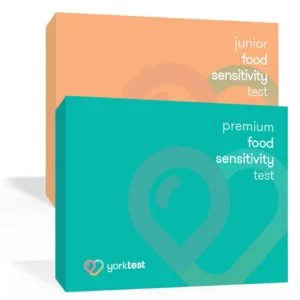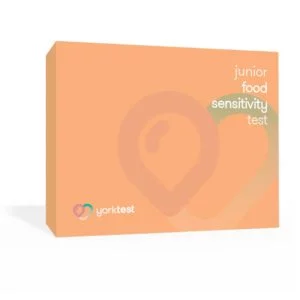Pumpkin spice latte. Macchiato. Americano. Cappuccino. No matter how you take yours, one thing’s for sure: we all love coffee. So, we’re taking a deeper look into our favourite drink and its positive effects.
For most of us, coffee is an essential morning (and afternoon) ritual that sets us up for the day with a boost of caffeine. But is our consumption healthy? And if so what are the health benefits of coffee?

Is coffee good for you?
When it comes to coffee nutrition facts, your standard cup of joe is known to contain high levels of antioxidants and nutrients. Research reveals that regular coffee drinkers appear to have a lower risk of developing certain diseases, with lower levels of inflammation in the body. Coffee then, in moderation of course, can be good for you. In fact, it might even be one of the healthiest beverages on the planet. Let’s explore more of its health benefits.
What are the health benefits of coffee?
Coffee gives you energy
We’ve all felt that kick as the health benefits of caffeine work to do its job – as a stimulant it keeps you alert, awake, and energised. But were you aware it may also have the power to make us smarter? Studies show that incorporating coffee into our daily lives has a positive impact in how we feel, what we can remember, how we react, and how we think. Pass us the cafetière!
Coffee helps you lose weight
One of the health benefits of caffeine includes the fact that it increases your metabolism, which increases the burning of fat in your body. Of course, it might not have as much of a health benefit if you team your coffee with full-fat milk, whipped cream and sprinkles. If you want to lose weight, there are huge benefits of black coffee.
Coffee helps with depression
We know coffee can make us feel more alert and awake, but can it also help with depression? Scientists seem to think so, due its ability to raise serotonin and dopamine levels in our brains.
Coffee is nutritious
Looking to up your doses of magnesium, potassium, or the various vitamin B’s? Coffee nutrition facts show that you need look no further than your coffee brew, full of essential nutrients. Ensure beans are organic and there’s no sugar added for a healthier kick.
Coffee can act as pain relief
Have you noticed that caffeine is a common ingredient in pain relief tablets? That’s because a health benefit of caffeine is that it reduces inflammation in the body (including the site of the pain), it blocks pain signals in the brain reducing discomfort and it also increases the effectiveness of medical pain relievers such as ibuprofen and aspirin. Wow, they weren’t wrong when they said a cup of coffee can be healing.
Coffee is a great way to get more fibre
One mug of coffee can contain up to 9% of your recommended daily intake of fibre.
Coffee decreases the risk of Type 2 Diabetes
Did you know that studies have shown that a compound found in coffee, cafestol, is thought to help prevent the onset of type 2 diabetes? It’s believed to increase insulin levels, while working to improve insulin sensitivity.
Coffee decreases the risk of Alzheimer’s and heart disease
Coffee is also thought to help stop both calcification in your arteries, which causes heart disease, and brain plaque building up, which is believed to cause Alzheimer’s disease.
Coffee may stop the developing of Parkinson’s
Scientists believe that the combination of EHT (a compound in coffee) and caffeine helps fight the onset of Parkinson’s in those predisposed to have the disease.
Coffee might lower the risk of MS
Multiple Sclerosis is a disease that affects your eyes, your brain, your spine, muscles and more. Research shows that drinking four cups of coffee a day, for people who are genetically predisposed to MS, can reduce the dangerous neural inflammation that triggers the disease’s development.
Is it bad to have coffee every day?
For a healthy adult, 400 mg of caffeine is recommended as the okay amount to consume per day (though this amount fluctuates depending on factors such as weight) which equates to roughly four cups of coffee, ten 300ml cans of fizzy drinks, or two energy drinks. When understanding your daily amount, consider that caffeine content can vary wildly in coffee, depending on the grind, how it has been roasted and brewed.
Drinking too much coffee, over the recommended amount, can lead to negative consequences like migraines, trouble sleeping and gastric issues. Caffeine addiction is also a real thing and can be an uncomfortable thing to shake, mainly due to harsh withdrawal symptoms.
If you’re an individual with a coffee or caffeine intolerance, it’s recommended to eliminate your daily cup from your diet with help from a certified nutritionist. Unsure if you have an intolerance? With a simple finger-prick blood test, the yorktest laboratory team will identify your IgG antibody reactions to up to 208 food and drink ingredients.
Our experts will guide you through the process and provide dietary advice that will help you make sure you don’t lose out on the nutrients, should you be advised to cut certain foods out of your diet altogether.
What does coffee do to your body?
As we’ve explored, too much caffeine can negatively affect all areas of your body, leading to headaches, stomach aches, even seizures and insomnia. However, there are many health benefits of coffee and health benefits of caffeine. Enjoying the right amount of coffee daily, whatever the type, can be healthy, nutritious, and delicious.











